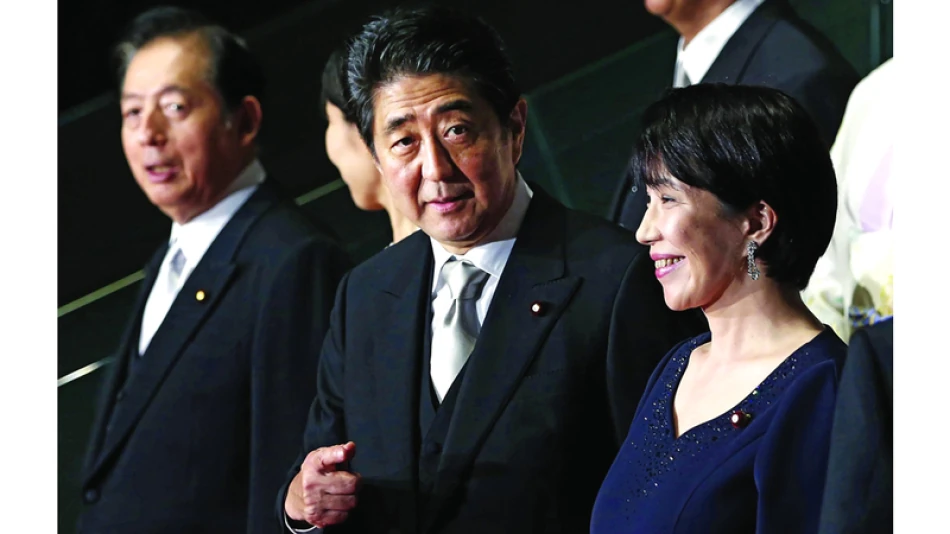
Japan Faces Challenges as Taro Kishi Elected to Lead Ruling Party
Japan enters uncharted territory as Sanae Takaichi becomes the country's first female prime minister in over 1,000 years. Her victory in leading the ruling Liberal Democratic Party signals a sharp rightward shift that could reshape Japan's economy, foreign relations, and domestic politics in ways that extend far beyond breaking gender barriers.
Takaichi won party leadership on October 4th and will assume the prime minister role next week. But she's no outsider - this is a seasoned politician who admires Margaret Thatcher and has spent decades climbing the ranks of Japan's male-dominated political system.
The Liberal Democratic Party chose her because they think she's their best shot at staying in power. After dominating Japanese politics for 70 years, the party now faces serious challenges from far-right movements like the "Japan First" Sanseitō party. Party members believe Takaichi's hardline approach can win back conservative voters.
Economic Gamble with High Stakes
Here's where things get risky. Takaichi wants to return to the economic policies of her mentor, assassinated former Prime Minister Shinzo Abe. Her plan has three parts: more government spending, easy money from the central bank, and structural reforms.
But there's a problem. These policies were designed for a country fighting deflation. Japan now has persistent inflation above the Bank of Japan's 2% target. Takaichi's proposals could make inflation worse, strain the budget, and weaken the yen further.
Stock investors might love this - they typically cheer fiscal stimulus and a weak yen. Bond markets won't be as happy. And without real structural reforms in areas like labor markets, Japan's long-term growth potential won't improve much.
Naoya Hasegawa, a senior analyst at Okasan Securities in Tokyo, says Takaichi's election makes it much less likely that the Bank of Japan will raise interest rates this month. Markets had been pricing in about a 60% chance of a rate hike before her victory.
Foreign Relations Minefield
Internationally, Takaichi shares Abe's controversial views on wartime history. This plays well with Japan's nationalist right, but it could damage recent progress with South Korea and further strain relations with China.
With the US, she'll likely express frustration with the $550 billion tariff and investment agreement her predecessor made with Donald Trump. But she can't afford to anger Japan's security provider by blocking it entirely.
Rising tensions with China and North Korea's new alliance with Russia mean Japan needs its regional partnerships. These structural forces might constrain how far Takaichi can push her nationalist agenda.
Breaking Barriers, Dividing Voters
At home, Takaichi is a polarizing figure. She opposes letting married couples keep separate surnames - a key issue for women's rights activists. She's also a prominent member of the ultra-nationalist lobby group Nippon Kaigi, which promotes patriotic education and wants to revise Japan's pacifist constitution.
Unlike many of her male colleagues, Takaichi didn't inherit her political position. Born in Nara Prefecture to a car company worker and a police officer, she's genuinely self-made. Before entering politics, she trained with a US Democratic congresswoman and worked as a TV commentator, famously wearing short skirts and riding motorcycles.
She gave up her beloved Kawasaki Zed 400 motorcycle after becoming a parliament member in 1993 at age 32, worried about accidents that might interfere with her work.
Her direct style wins over voters, and she represents a fresh change from the hereditary politicians who dominate Japanese politics. But her conservative positions on social issues and foreign policy concerns could backfire long-term.
Constrained by Reality
The Liberal Democratic Party now leads a minority government. Takaichi will need to expand the coalition or work with opposition parties to get policies passed. This political reality might force her to moderate her positions.
At her victory press conference, she outlined plans for tax cuts and increased subsidies while acknowledging the importance of "fiscal caution." She said the central bank's monetary policy should consider the economy's fragility and wage growth.
"Instead of feeling happy now, I feel that a real challenge faces us," Takaichi said. "I'm convinced that enormous work awaits us all. We must unite our ranks, from all generations, and work as one team to rebuild the Liberal Democratic Party."
The question now is which version of her mentor she'll emulate: the ideological Abe of his first, unsuccessful term, or the pragmatic politician of his record-setting second tenure. Japan's economic future and regional stability may depend on the answer.
Most Viewed News

 Sara Khaled
Sara Khaled






